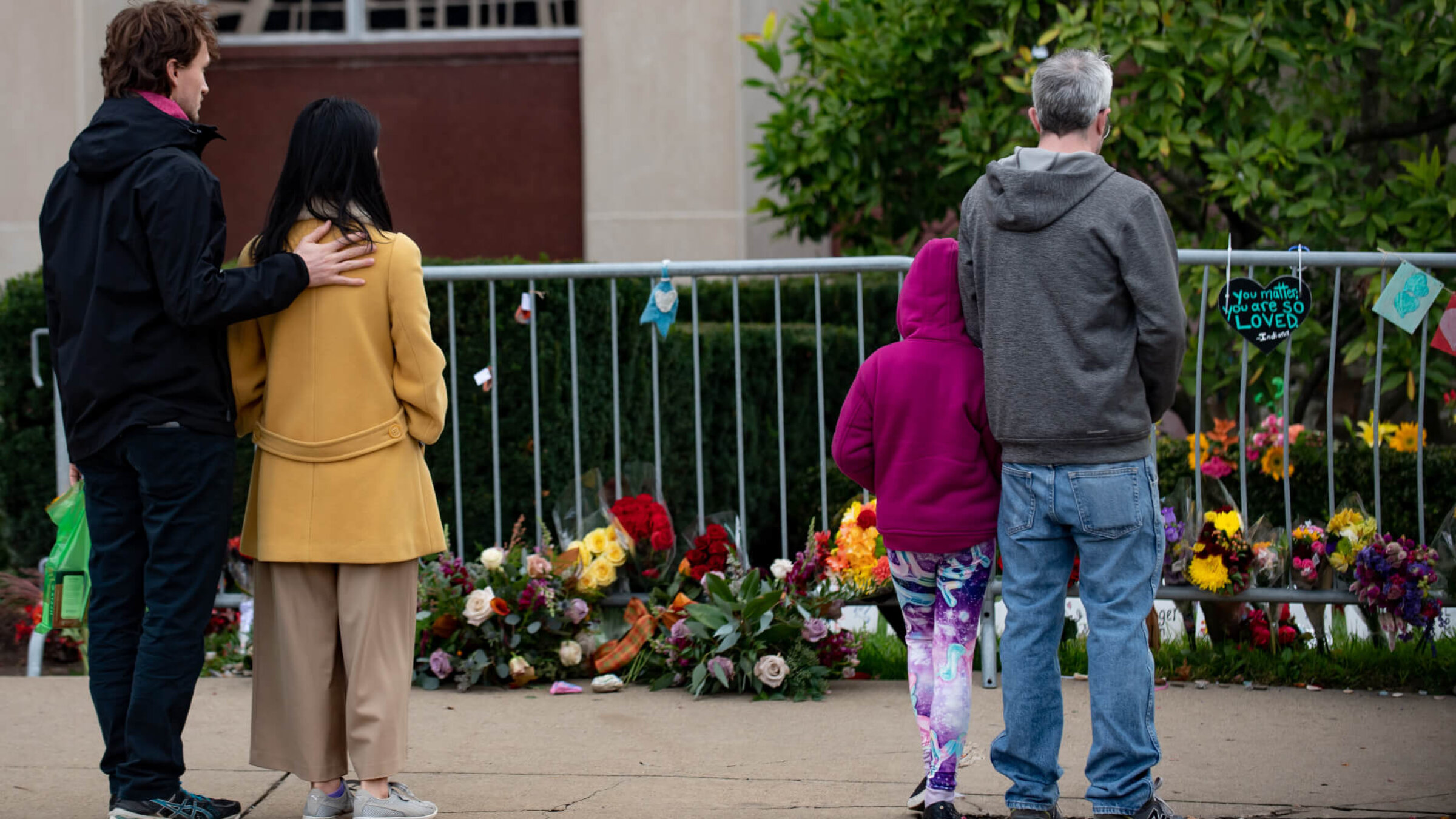Death penalty a possibility in cases of ‘ultimate evil’ says Pittsburgh federation rabbi
As the Tree of Life gunman awaits sentencing, a federation rabbi holds a press conference on Judaism and capital punishment

Outside the Tree of Life synagogue in Pittsburgh, one year after a gunman killed 11 worshippers there in 2018. Photo by Jeff Swensen/Getty Images
As a jury debates the fate of the Tree of Life shooter, a rabbi affiliated with the Jewish Federation of Greater Pittsburgh publicly argued on Tuesday that Jewish law unambiguously permits the death penalty, though he did not explicitly say whether he believes it should apply in this case.
“It’s not really conceivable to think about making the statement that Judaism is theoretically opposed to the death penalty when every single book of the Torah really advocates or instructs that consideration be given to the possibility of applying the death penalty in certain circumstances,” said Rabbi Danny Schiff, referring to Jewish law.
“Judaism comes along to say the following,” he continued, at a virtual press conference hosted by the federation. “The death penalty should be a possibility for those particular moments, when society is confronted with an example of ultimate evil.”
Many within and beyond the Jewish community believe that Robert Bowers, convicted earlier this month of killing 11 Jewish worshippers in 2018 at Tree of Life, a Pittsburgh synagogue that is home to three congregations, had committed such an evil, and deserves nothing less than capital punishment.
Death penalty divisions
But the city’s Jewish community is far from unanimous over the question. Though most of the families of the victims voiced their support for the death penalty, Rabbi Jonathan Perlman, who was present during the shooting, and Miri Rabinowitz, whose husband was killed in the attack, favor a life sentence.
The statements from Schiff, an ethicist who was ordained in the Reform movement and who holds the title of “federation scholar” at the federation, may bolster those pushing for the death penalty.
The sentencing stage of the trial, which began Monday, is expected to last several weeks. Bowers’ defense team aims to dodge the death penalty, which the prosecution seeks, in favor of a life sentence. They are mounting a mental health defense, and hope to convince jurors that Bowers’ actions were a result of impairments disqualifying for capital punishment.
Schiff also referred to the Talmud — rabbinic commentary on Jewish law — in his remarks, stressing that the texts make clear that it should be applied with utmost caution.
“There are so many prerequisites, in order to make sure that the death penalty would be carried out in a way that truly bespeaks a Jewish sense of justice, that if you were to actually be able to put all those different presets in place, you would find that the death penalty would be carried out in a way that is exceedingly rare,” he said.
American Jews are split on capital punishment. A 2016 Gallup poll found that 54% of Jews view the death penalty as “morally acceptable” — fewer than Catholics, Mormons and Protestants.
Correction: The original version of this article incorrectly stated that Rabbi Jonathan Perlman was injured during the 2018 Tree of Life shooting. He was not injured, but was present and helped hide congregants during the attack.



















